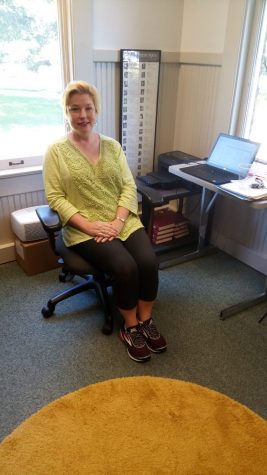Scholarships and fellowships can help alleviate college debt
Paying for tuition at a private university can be painful, but there are a multitude of ways to help ease the strain on your bank account. Scholarships and fellowships can be a great way to lessen the semi-annual financial blow of tuition fees, and you may not even know about all the ones you are eligible for.
Due to the slowly recovering economy and low growth in the job market, many students may be reluctant to get into debt by taking out loans for college, especially when they consider the amount of debt their predecessors are in. The average debt for the class of 2008 is $23,200, and after hearing that number, who wants to do that to themselves?
While scholarships and fellowships are both considered grants that help ease financial strain, they can have different meanings depending on the context. Scholarships are usually awarded to undergraduate students, and can be both need-based and merit-based. Fellowships are usually not based on need, and often require applicants to have specific skills or interests. Fellowships can also have internships or jobs attached and the money awarded is payment for work. Fellowships can also be scholarships, but scholarships are not considered to be fellowships.
Looking for scholarships can be discouraging. Small odds of winning contest scholarships and too-good-to-be-true offers may make some want to just quit school altogether. The St. Edward’s website has links to multiple scholarships, including scholarships funded by the university as well as externally funded scholarships.
If you spend a lot of time in the JBWN building, you might have seen flyers for the Robert Noyce Teacher Scholarship. However, there are a slew of other sciences scholarships that can be found on the School of Natural Sciences’ web page.
For example, the Robinson scholarship is given to students who will attend graduate school immediately after graduating. Questions about qualifications and deadlines for applying can be answered by contacting the Associate Dean of the School of Natural Sciences.
The New College offers a merit scholarship to students enrolled in the New College with a minimum 3.2 cumulative GPA and a minimum 12 hours. The applications are available this month for the 2011-2012 academic year.
Graduate students can also find scholarships and fellowships to suit their needs. St. Edward’s provides links to outside resources, such as the James Madison Memorial Fellowship Foundation. This fellowship is for graduate students who are or want to become a secondary history teacher. The maximum amount rewarded is $24,000, and the deadline is March 1. More information can be found at jamesmadison.com.
If you’re wondering what you need to be a good candidate for a scholarship or fellowship, you need only to ask. Talk to your advisor and your professors to make sure you’re on the right path to reach your goals. The better you get to know your professors, the more likely they will be willing to write you a shining letter of recommendation.
“Most of our successful candidates have a 3.7 GPA and above, though there are some exceptions,” said Caroline Morris, Director of Fellowships at St. Edward’s.
As the Director of Fellowships, Morris is the go-to person on campus for students considering applying for scholarships and fellowships. She counsels students who are considering applying for funding to study and can help you seek out scholarships that are best fit for you.
Besides a solid GPA, be sure to keep track of your extracurricular activities and community service—larger scholarships are inclined to take those factors into account when reviewing your application.
Students at St. Edward’s have had success with scholarships and fellowships in the past.
“Last year, St. Ed’s students won six fellowships: 4 Fulbright’s, an Environmental Protection Agency Scholarship and an Austrian Government Teaching Assistantship,” said Morris.
The scholarships and fellowships pages on the St. Edward’s web site index can provide a plethora of links, advice, and resources to get you started before you talk to your adviser. Also, your adviser may be able to point you in the direction of web sites, such as fastweb.com, that have listings and applications to a great number of other scholarships you may not have thought of on your own (or even ever heard of).
Do not put your education on the backburner because the prices are steep—and growing steeper every year. Rather, take initiative and use the resources that are at your fingertips. You might be surprised by what you can find.





